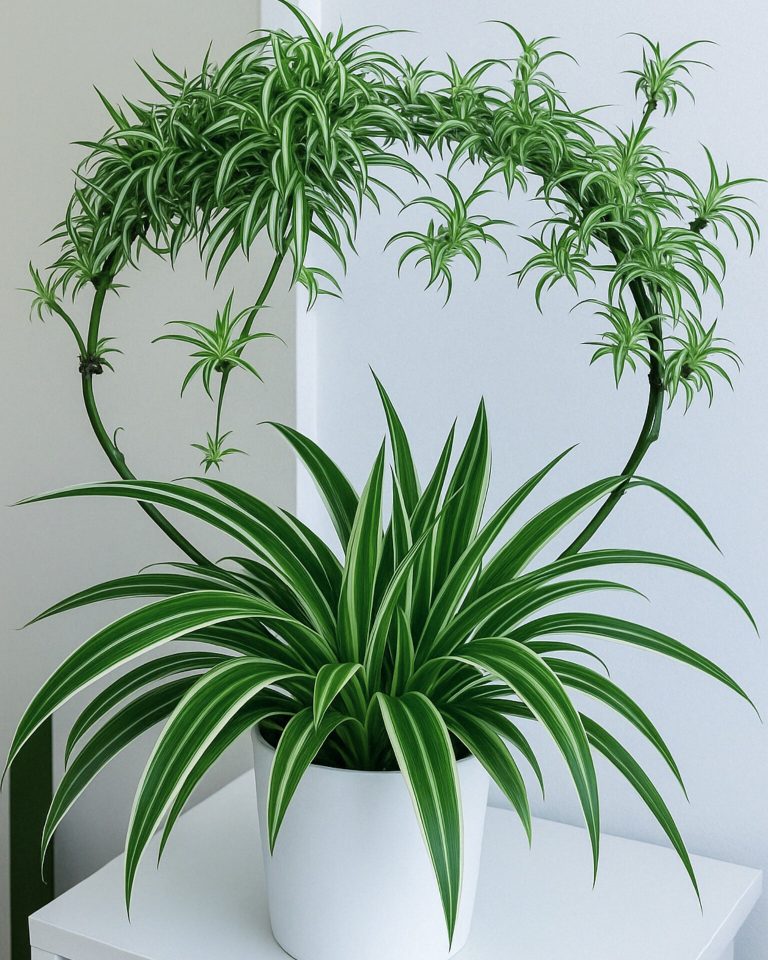Complete Spider Plant Care Guide
Light Requirements
Spider Plants thrive in bright, indirect light but adapt remarkably well to various light conditions. While they can tolerate lower light levels, their growth may slow and variegation might become less pronounced.
Best locations:
- Near east or west-facing windows
- A few feet away from south-facing windows
- North-facing windows (though growth may be slower)
Avoid:
- Direct, harsh sunlight which can scorch the leaves
- Extremely dark corners with no natural light
Watering Needs
Spider Plants prefer a moderate watering schedule with soil allowed to dry out slightly between waterings. Their thick, tuberous roots store water, making them somewhat drought-tolerant.
Watering tips:
- Water when the top 1-2 inches of soil feels dry to the touch
- Reduce watering frequency during winter months
- Use room-temperature water when possible
- Ensure proper drainage to prevent root rot
Signs of improper watering:
- Brown leaf tips often indicate under-watering or low humidity
- Yellowing leaves may suggest overwatering
- Soft, mushy stems near the base indicate severe overwatering
Soil and Potting
Spider Plants aren’t particularly fussy about soil, but they perform best in:
- Well-draining, loamy potting mix
- Standard houseplant soil with added perlite for better drainage
- pH levels between 6.0 and 7.2
Repotting:
- Repot every 1-2 years or when roots become visible through drainage holes
- Choose a pot 1-2 inches larger than the previous container
- Spring and early summer are ideal times for repotting
Temperature and Humidity
Spider Plants are comfortable in average household conditions:
- Ideal temperature range: 65-75°F (18-24°C)
- Can tolerate temperatures as low as 35°F (2°C) for short periods
- Prefers moderate humidity but adapts to drier conditions
Humidity tips:
- Occasional misting benefits Spider Plants in very dry environments
- Grouping plants together naturally increases humidity
- Avoid placing near heating vents or air conditioners
Fertilization
Spider Plants don’t require heavy feeding:
- Apply a balanced, water-soluble fertilizer at half strength once a month during spring and summer
- Reduce or eliminate fertilizer during fall and winter
- Over-fertilization can cause brown leaf tips and salt buildup
- see continuation on next page
